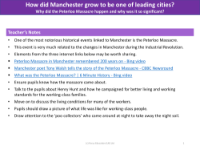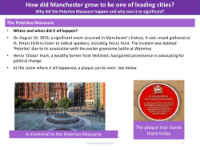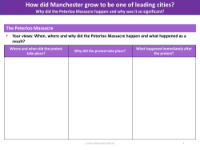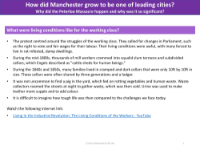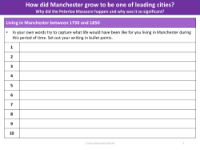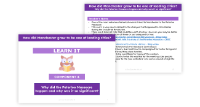Why did the Peterloo Massacre happen and why was it so significant? - Presentation
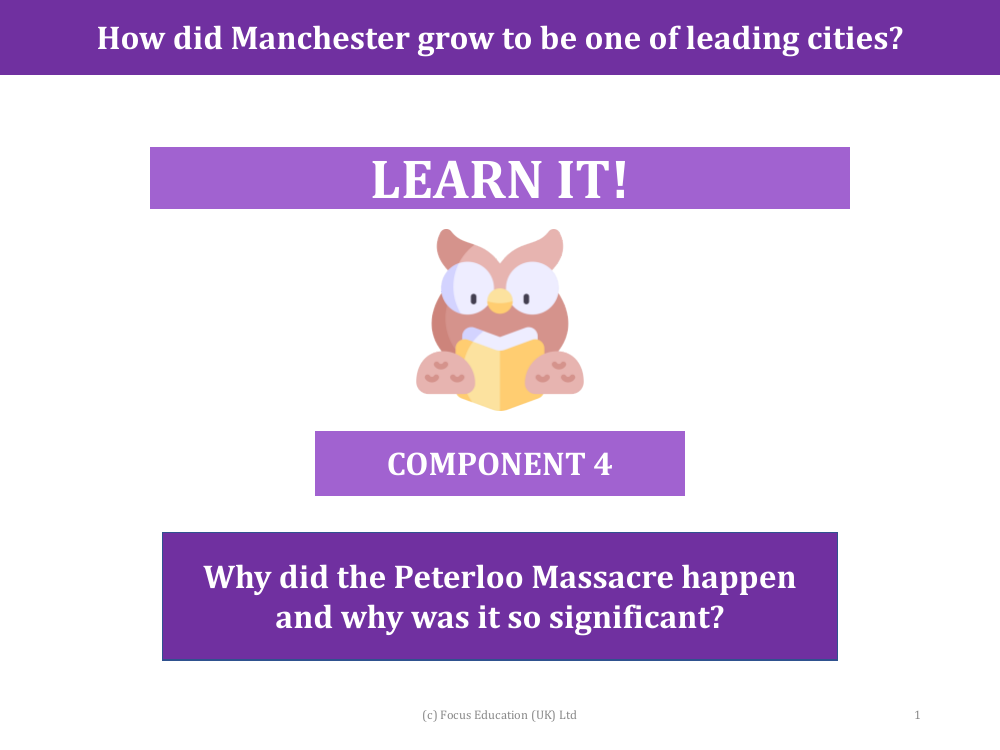
History Resource Description
The Peterloo Massacre, a pivotal event in British history, occurred on August 16, 1819, when a large crowd gathered at St. Peter's Field in Manchester to listen to the radical speaker Henry Hunt. The gathering was part of a wider campaign for parliamentary reform, advocating for better living and working conditions for the working class during the tumultuous times of the Industrial Revolution. The local magistrates, feeling threatened by the assembly, ordered the Manchester Yeomanry to arrest the speakers. As tensions escalated, the Yeomanry and later the 15th Hussars charged into the crowd, resulting in a tragic loss of life, with fifteen people killed and over 600 wounded. The event was ironically named 'Peterloo', echoing the Battle of Waterloo, to underscore the contrast between the fight against tyranny abroad and the repression of liberty at home.
The significance of the Peterloo Massacre cannot be overstated. It was a catalyst for change, highlighting the desperate need for political and social reform. In the immediate aftermath, the government's response was repressive; they praised the army's actions, imprisoned Henry Hunt, and implemented measures to restrict public assemblies and control the press. However, the public reaction was one of horror and outrage, which eventually contributed to the reform movement gaining momentum. The massacre became a symbol of the struggle for democratic rights and fair representation, leaving an indelible mark on the collective consciousness of the nation and influencing the course of British democracy.
